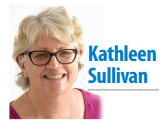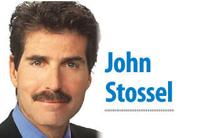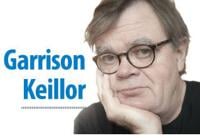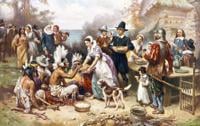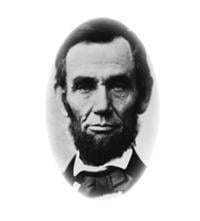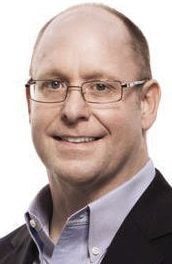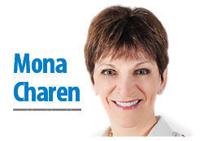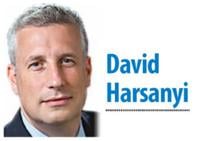HAPPY THANKSGIVING week! I am curling up with the latest book in the Louise Penney Three Pines series, “The Grey Wolf.” I am confident that once again Armand Gamache will solve at least one murder.
Predictable, but in this crazy world, predictability is good.
Also predictable: my year-end book recommendations.
It is not for everyone, but the best novel I have read this year is “Babel,” by R.F. Kuang. It takes place in an alternative 1830s at an evil Oxford University. At Oxford, corrupt professors train and exploit students who possess both magical and linguistic abilities. It is a dark look at the British Empire at the time of the Opium Wars, when the English used violence to force the importation of opium into China, promoting addiction for profit. It is a sad, tragic, excellent book.
The best non-fiction book of my year is “Knife” by Salman Rushdie. It is the story of the attempt on his life and his recovery, but also what he describes as his meditations after the attack. It is at times laugh aloud funny, but at others, very serious, such as his discussion of the need “to overturn the false narratives of tyrants, populists and fools…”
I also read two much-anticipated sequels. Don Winslow published his third and final novel in the Danny Ryan trilogy. Loosely using the framework of the “Aeneid,” “City In Ruins” completes the story of the former Providence mob member turned Las Vegas casino owner. He is a tragic hero who cannot escape the murderous past. A good ending to a great series.
“The Black Bird Oracle” by Deborah Harkness is not the best in the Discovery of Witches series. I liked this book, but it is a bit of a mess. Harkness introduces a whole new cast of supporting characters while omitting some of the more interesting characters from the prior books. But while I cannot give it a full throated endorsement, if you are a Discovery of Witches fan, I still recommend reading, as I enjoyed the Massachusetts witches and their connections to the Salem witch trials.
I highly recommend three other novels. The first is Kristen Hannah’s “The Women,” whose heroine is a young, inexperienced and idealistic Army nurse who serves in Vietnam. Upon her return home, she faces the double shock of a country that does not want to hear about the war, and a military establishment that offers no help to the women who served and suffered from PTSD. It is a devastating depiction. Hannah continues to become a better and better writer.
The second is “North Woods” by Daniel Mason. I was expecting some sort of family saga set in the forests of western Massachusetts, but instead found a story of various inhabitants and visitors over the centuries who are not all related, and a history of the forest itself. There are ghosts, but it is not a horror story. It’s a hard book to describe, but sometimes those are the best books.
The third recommendation is “The Measure,” by Nikki Erlick. What would the world be like if everyone over the age of 21 could learn their approximate date of death? Would you like to know? Would you live your life differently? Would the world look at “short-stringers” differently? Intriguing questions, which are asked, and answered, through the experiences of several characters.
My final two recommendations are from the non-fiction section. “The Friday Afternoon Club” is a memoir by the actor and director Griffin Dunne. His parents were members of the New York/Los Angeles celebrity/intelligentsia of the 1960s and 1970s. It’s a little gossipy, a little sad, and very entertaining.
“All The Beauty In The World” by Patrick Bringley is another memoir. Following the death of his beloved brother, Bringley left his career track to work as a museum guard at New York City’s Metropolitan Museum of Art. It is a view of the museum from the staff cafeteria, as well as an appreciation of the art and its calming powers. It is a must read for art lovers. If you have ever been to the Met, or plan to go, or want to go, or just enjoy good writing, read this book.


